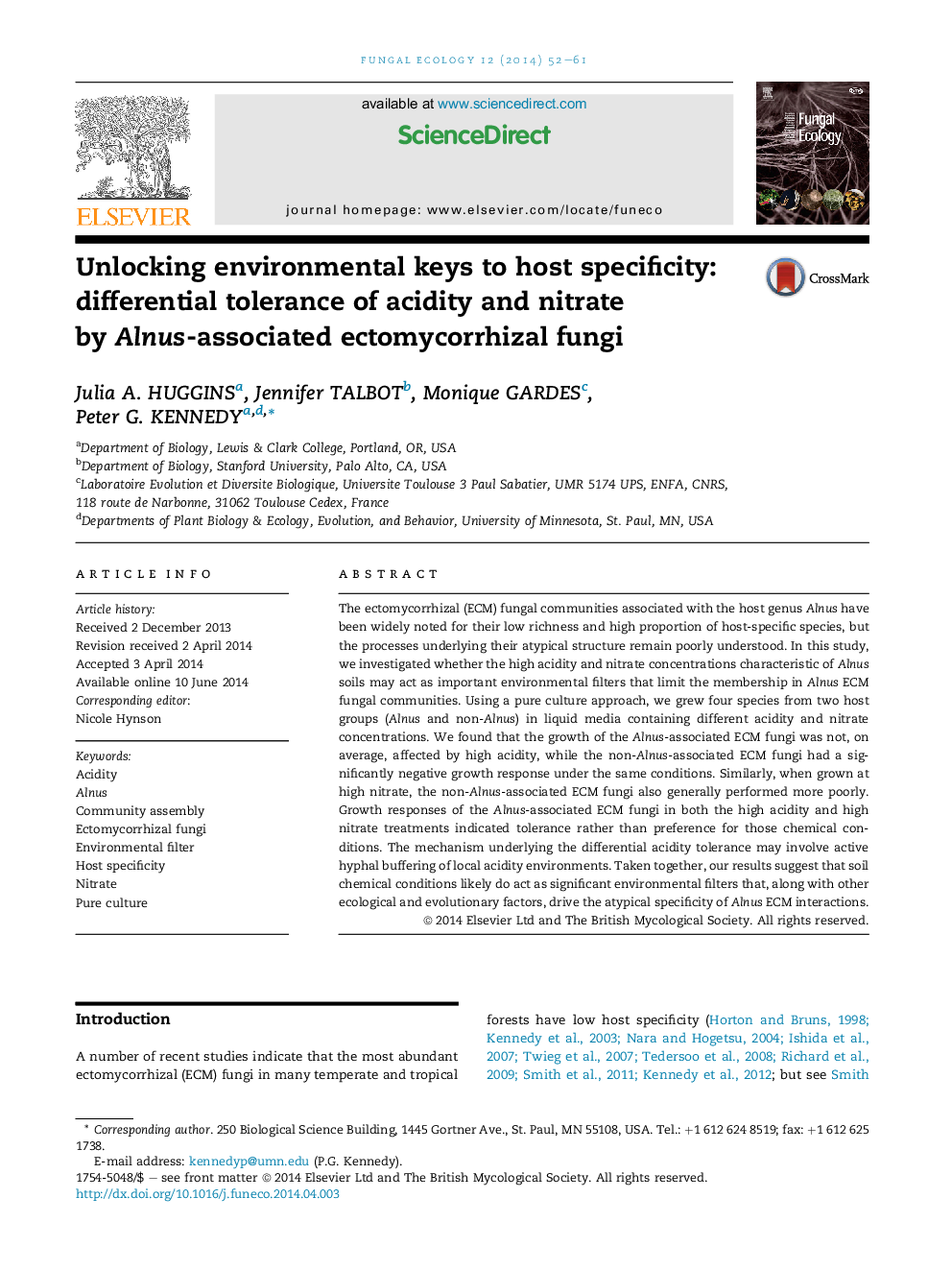| کد مقاله | کد نشریه | سال انتشار | مقاله انگلیسی | نسخه تمام متن |
|---|---|---|---|---|
| 2053940 | 1543652 | 2014 | 10 صفحه PDF | دانلود رایگان |

• Alnus and non-Alnus ectomycorrhizal fungi may differ in acidity and nitrate tolerance.
• We found that high acidity and nitrate favored growth of Alnus ectomycorrhizal fungi.
• This difference was due to greater tolerance not preference for high acidity and nitrate.
• We conclude that soil acidity and nitrate conditions likely act as significant community filters.
The ectomycorrhizal (ECM) fungal communities associated with the host genus Alnus have been widely noted for their low richness and high proportion of host-specific species, but the processes underlying their atypical structure remain poorly understood. In this study, we investigated whether the high acidity and nitrate concentrations characteristic of Alnus soils may act as important environmental filters that limit the membership in Alnus ECM fungal communities. Using a pure culture approach, we grew four species from two host groups (Alnus and non-Alnus) in liquid media containing different acidity and nitrate concentrations. We found that the growth of the Alnus-associated ECM fungi was not, on average, affected by high acidity, while the non-Alnus-associated ECM fungi had a significantly negative growth response under the same conditions. Similarly, when grown at high nitrate, the non-Alnus-associated ECM fungi also generally performed more poorly. Growth responses of the Alnus-associated ECM fungi in both the high acidity and high nitrate treatments indicated tolerance rather than preference for those chemical conditions. The mechanism underlying the differential acidity tolerance may involve active hyphal buffering of local acidity environments. Taken together, our results suggest that soil chemical conditions likely do act as significant environmental filters that, along with other ecological and evolutionary factors, drive the atypical specificity of Alnus ECM interactions.
Journal: Fungal Ecology - Volume 12, December 2014, Pages 52–61